News
Nigeria Seeks Permanent Spot on UN Security Council

News
Obasanjo Under Heavy Hammer Over Corruption Allegations Against Buhari, Tinubu

Ex-President Olusegun Obasanjo has been under attack since on Friday after accusing the President Bola Ahmed Tinubu and Muhammadu Buhari administrations of corruption.
In his latest book, Nigeria: Past and Future, Obasanjo claimed that Buhari’s government oversaw “the most atrocious waste” and that “corruption was at its peak” during his tenure.
He further alleged that Tinubu’s administration appears to be following the same path and may even surpass Buhari’s record in misgovernance and corruption.
Reacting to these accusations, prominent figures across the country dismissed Obasanjo’s claims, arguing that his own administration was riddled with corruption.
Obasanjo Lacks Credibility to Accuse Others – Girei
Senator Abubakar Girei, a former lawmaker from Adamawa State, stated that Obasanjo was in no position to label any government as corrupt, given the level of fraud that characterized his own tenure.
Girei, who represented Adamawa Central Senatorial District between 1999 and 2003, claimed he had firsthand knowledge of Obasanjo’s alleged corrupt dealings.
“Obasanjo is the least qualified of all past presidents to accuse Buhari or anyone of corruption,” Girei said.
He recalled how Obasanjo allegedly manipulated the Senate to impose Evans Enwerem as Senate President, only for the lawmakers to later impeach him and replace him with Chuba Okadigbo.
Girei further challenged Obasanjo to explain how his administration spent ₦16 billion on a failed electricity project.
He said: “Buhari might have had some people around him who might not have been so upright, but till today, Buhari remains a man of integrity.”
On Obasanjo’s criticism of Tinubu’s administration, Girei dismissed the claims as baseless and urged the former president to allow Tinubu to focus on governance.
“Obasanjo, who did eight years as president and could hardly show any results, should leave Tinubu alone to continue concentrating on the job he was elected for,” he said.
Sani to Obasanjo: Provide Evidence for Your Allegations
Anthony Sani, a former Secretary General of the Arewa Consultative Forum (ACF), accused Obasanjo of consistently undermining every Nigerian leader except himself.
“When former President Obasanjo alleges that corruption under President Buhari was worse, and that under President Bola Tinubu is also worse than their predecessors, many Nigerians would expect the former President to back up his claims with evidence through some trend analyses,” he said.
He added that as a former president, Obasanjo should not make “allegations with a sleight of hand” and should provide concrete proof to support his claims.
Regarding concerns over the ₦15 trillion Lagos-Calabar Coastal Road project, Sani said Nigerians were worried about the cost due to “competing demands on limited resources“, but stressed that Obasanjo should offer more details on why he considers the project wasteful.
Odili to Obasanjo: The Halliburton Scandal Happened Under Your Watch
Dr. Ifeanyi Odili, National President of the Campaign for Democracy (CD), dismissed Obasanjo’s claims, reminding him that the Halliburton scandal, one of Nigeria’s worst corruption cases, occurred during his presidency.
He said: “I don’t believe that Buhari’s administration is the most corrupt government in Nigeria so far. What about Obasanjo’s government? Can he claim he was a saint throughout his government?”
Odili further argued that Obasanjo’s administration had more corruption cases than Buhari’s, adding: “The Campaign for Democracy has written to him once to leave Nigerian politics. He should stop imposing people. He is old enough to retire. He is so restless. He just wants to be heard all the time. He wants to control the presidency, he wants to control everybody. He cannot continue like that. He should go and rest.”
The Halliburton bribery scandal, which involved illegal payments to Nigerian officials between 1994 and 2004, led to a $382 million settlement between Halliburton and the U.S. Department of Justice. While some individuals were prosecuted, no top official in Nigeria was held accountable.
Adebayo: Obasanjo Conducted Nigeria’s Worst Election
Hon. Adewale Adebayo, Osun State Chairman of the Allied Peoples Movement (APM), accused Obasanjo of overseeing “the worst election in Nigeria’s history” and running a government filled with corruption and political persecution.
He said: “Apart from conducting the worst election in Nigeria’s history, the Obasanjo government was also neck-deep in greed, corruption, witch-hunting, and most tragic to us, his administration killed Bola Ige, our own.”
He described Obasanjo as self-serving and called on him to stop criticizing sitting presidents.
Adebayo also defended the Lagos-Calabar Highway project, calling it a “game changer” that will boost Nigeria’s regional connectivity.
He said: “Obasanjo should stop all this wailing and focus on God to seek forgiveness for all his misdeeds as a fortunate leader who mismanaged the mandate given to him.”
Buhari’s Administration Had Corruption Issues – Ruwagodia
Dr. Bashir Ruwagodia, a Katsina-based civil rights activist, acknowledged that while Buhari himself was incorruptible, his administration failed to properly tackle corruption.
Ruwagodia, who served as Special Adviser on Higher Education under ex-Governor Aminu Bello Masari, noted that Buhari’s government failed to hold some corrupt officials accountable.
Former Minister of Communication, Alhaji Adebayo Shittu, also echoed similar sentiments.
He said: “Even though the EFCC has not gone to probe the entire government, we do know that the former Minister of Aviation, Hadi Sirika, is currently facing trial at the behest of EFCC.
“The crisis with Emefiele’s multidimensional corruption is also a case in point, and I don’t see former President Buhari’s government coming completely clean of it.”
Shittu maintained that while Buhari himself was “absolutely incorruptible,” his failure to properly supervise his ministers allowed corruption to thrive.
He said: “No matter how incorruptible a leader is, once there are cases of approving projects for ministers without ensuring effective supervision, then one is indirectly responsible for their misdeeds.”
He specifically mentioned that former Central Bank Governor Godwin Emefiele had insiders within the presidency who enabled him to obtain multiple approvals for controversial policies.
He said: “I can’t recall any specific effort done to re-launch the erstwhile War Against Corruption in Nigeria. I think Buhari performed better as a military head of state in the fight against corruption than he did as a civilian President.”
Shittu called on the Tinubu administration to learn from Buhari’s shortcomings and implement stronger anti-corruption measures.
News
Anambra govt prohibits students from using phone in school
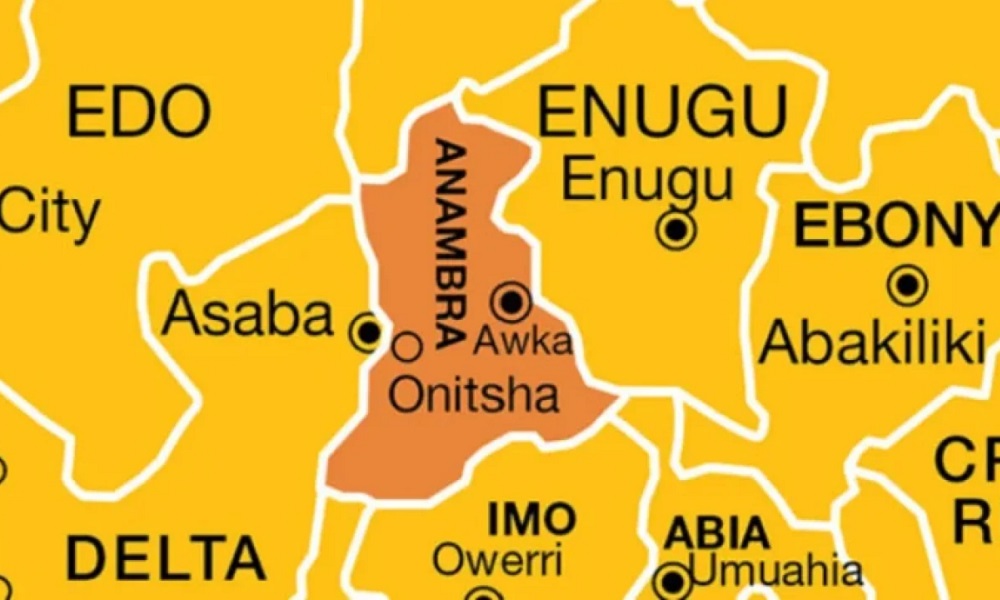
The Anambra State Government has placed a ban on the use of mobile phones by students in secondary schools across the state.
Chairman of Post Primary Schools Service Commission in the state, Prof Nkechi Ikediugwu, made the announcement at the Anambra Schools’ Cultural Day celebration on Friday in Awka.
Ikediugwu, according to a report by the News Agency of Nigeria, directed principals and teachers of secondary schools in the state to confiscate mobile phones brought to school by students.
She said the decision was aimed at curbing distractions and enhance academic performance.
Ikediugwu stated that there was the need to maintain discipline and focus in learning environments, noting that the increasing use of mobile phones by students during school hours had become a serious distraction to their studies.
“I am authorising principals and teachers to seize phones from students who come to school with them so that we can ensure that students concentrate on their academic work without the interference of phones.
“Governor Chukwuma Soludo’s administration is making significant investments in education to promote academic excellence and instill discipline among students,” she said.
She emphasised the beauty and uniqueness of Igbo traditions, describing them as valuable identity that should be cherished.
“Igbo culture extends beyond clothing and dancing, as the Igbos are also known for their honesty, truthfulness, hard work, respect for elders, and many other admirable qualities.
“It is important to continuously educate our students on the values and norms of Ndigbo, to preserve the rich heritage of the Igbo people,” she said.
News
EU pledges €820m to support Nigeria’s digital transformation initiatives

The European Union has reaffirmed its dedication to supporting Nigeria’s digital economy with an €820 million investment aimed at fostering innovation, developing digital infrastructure, and creating employment opportunities for young people.
At the Omniverse Summit in Lagos on Friday, the EU Ambassador to Nigeria and ECOWAS, Gautier Mignot, stressed the importance of digitalisation in driving economic growth.
He noted that the EU’s Global Gateway Strategy is focused on empowering Nigeria’s digital ecosystem through regulatory support, skills development, and strategic partnerships.
“The EU is keeping its commitment with the over €800 million digital package announced for Nigeria. We believe that the challenges facing humanity require collective action, and Nigeria, Africa, and Europe’s destinies are closely interlinked,” Mignot stated.
With this investment, the EU aims to strengthen Nigeria’s digital sector by enhancing governance infrastructure, supporting startups, and enabling young entrepreneurs to access new opportunities in the global digital economy.
The summit is organised in collaboration with various partners, including the European Union, GIZ’s Sustainable Economic Development Cluster (SEED) and Digital Transformation Centre Nigeria, the Centre for Black and African Arts and Civilization (CBAAC), the National Information Technology Development Agency (NITDA), and the Federal Ministry for Art, Culture, Tourism and Creative Economy, among others.
-

 News17 hours ago
News17 hours agoFCT Minister is not having sleepless nights over Rivers politics– Olayinka
-
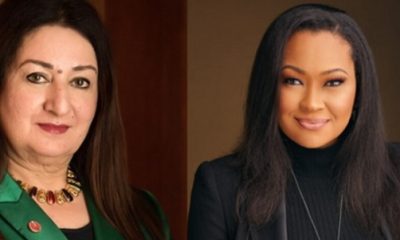
 News22 hours ago
News22 hours agoCanadian Senator throws weight behind Natasha Akpoti-Uduaghan
-
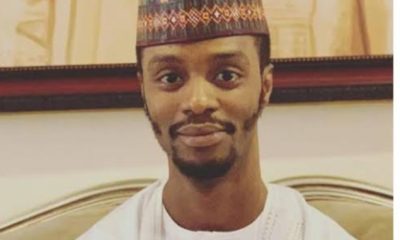
 News17 hours ago
News17 hours agoEl-Rufai’s son apologises to Nigerians over tweet supporting Southern Kaduna k!llings
-

 News22 hours ago
News22 hours agoSad! Ex-House of Assembly majority leader dies in London
-

 News22 hours ago
News22 hours agoFG advises Nnamdi Kanu to renounce IPOB for his release
-
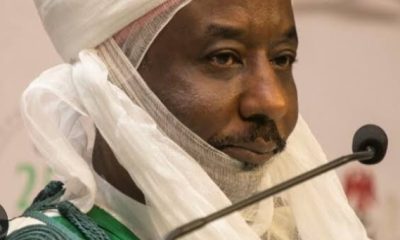
 News20 hours ago
News20 hours agoAppeal Court halts Emir Sanusi’s reinstatement
-
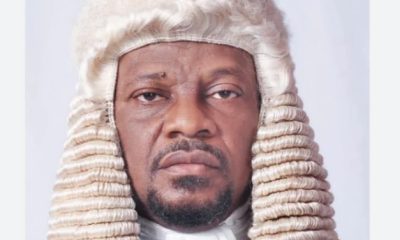
 News16 hours ago
News16 hours agoRivers Assembly pass new major bills into law
-

 News22 hours ago
News22 hours ago42-yr-old woman slumps, dies during Ramadan tafsir in Abuja






